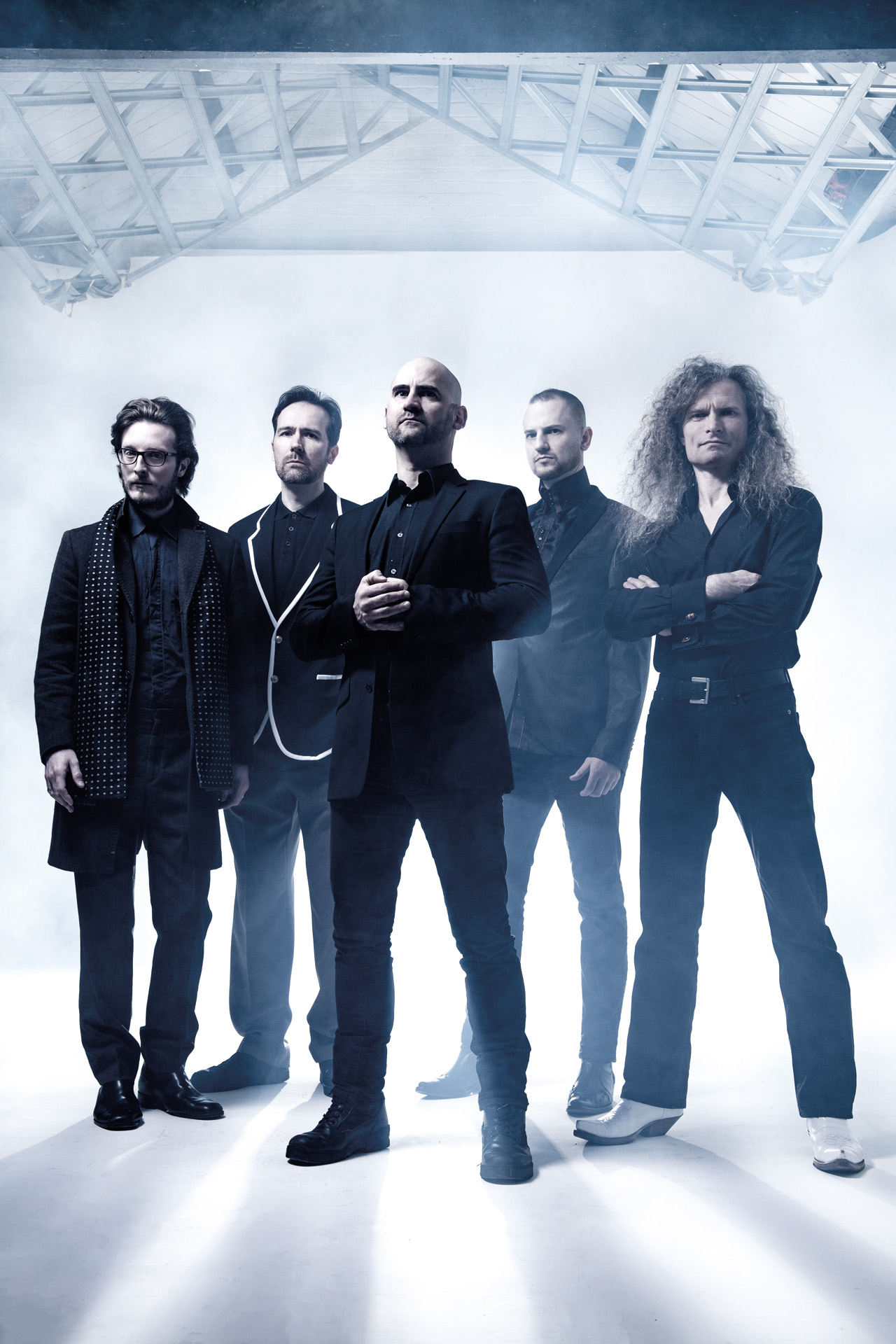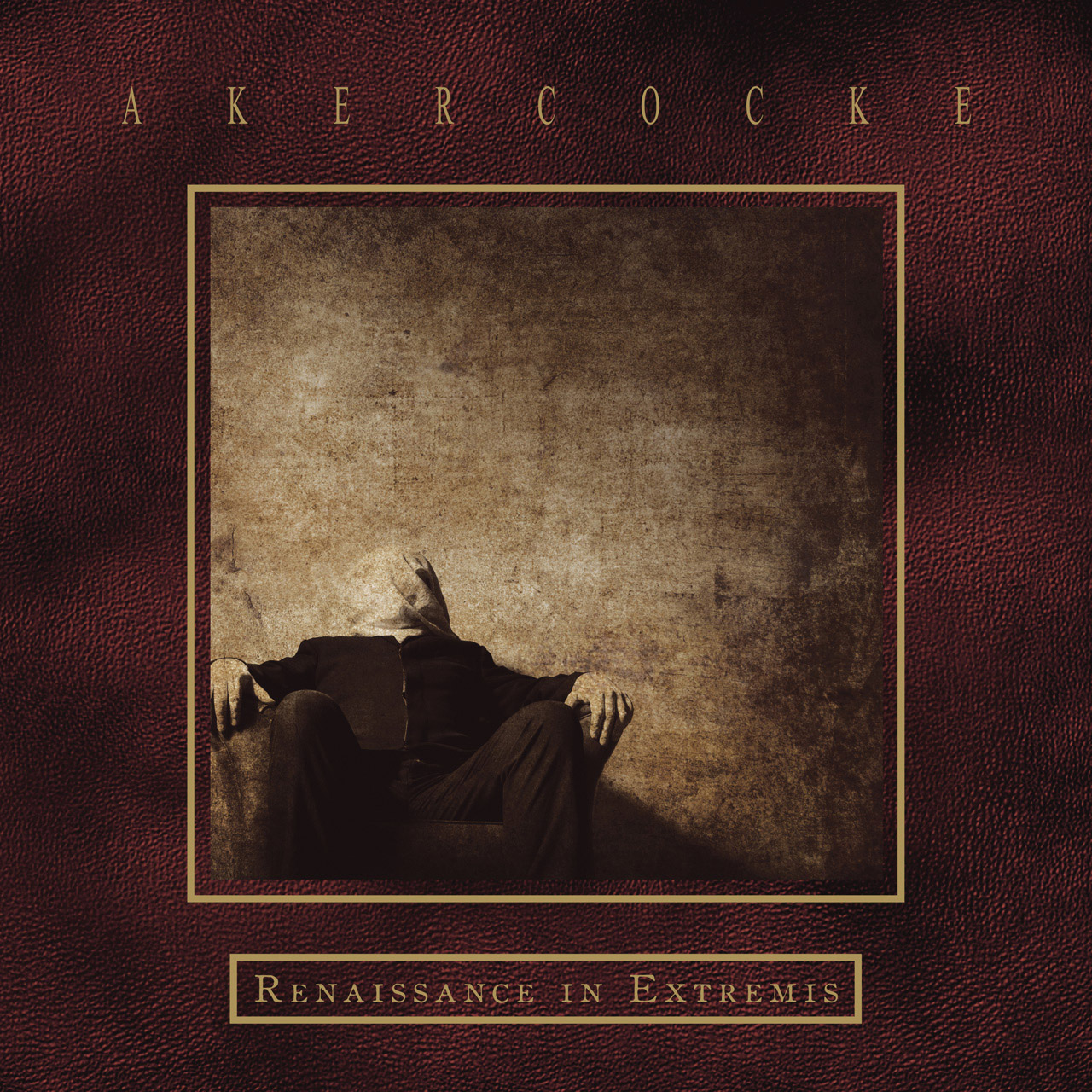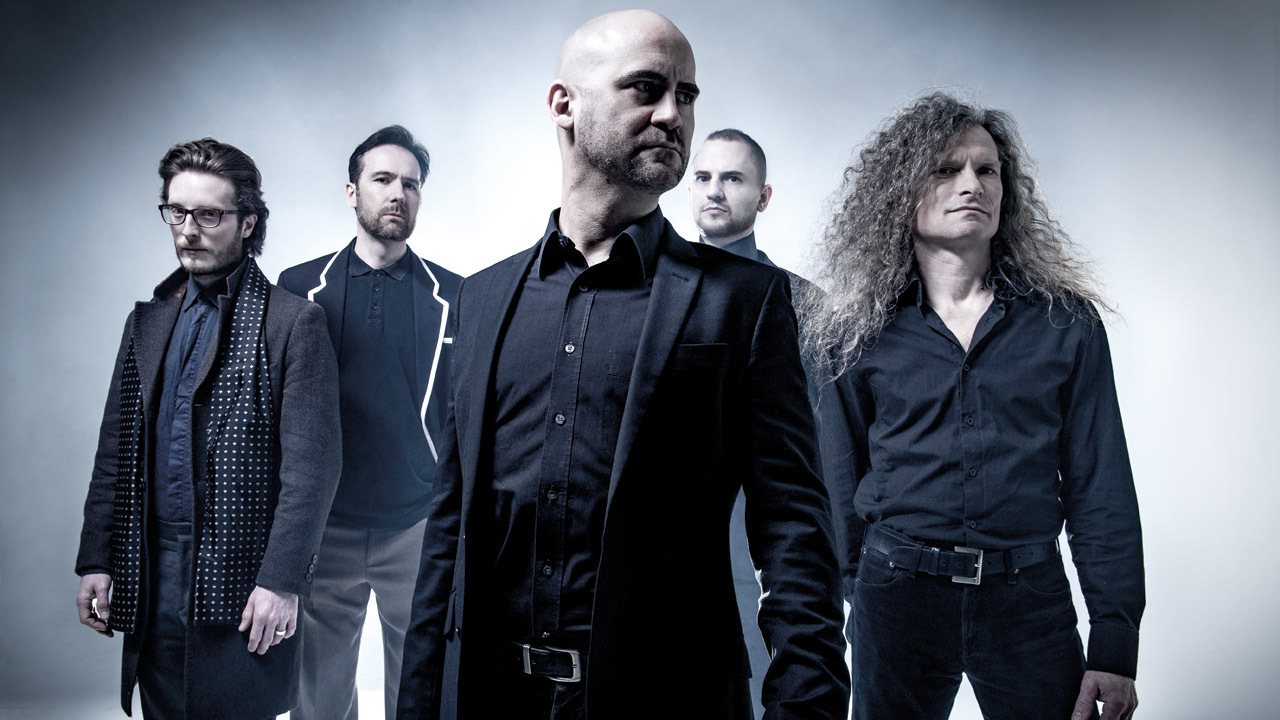Jason Mendonca can’t say exactly when the light went out in his head. He remembers what he calls “the decline” kicking in during the latter days of his band Akercocke’s original incarnation in 2010 or 2011. But the real crunch came a couple of years later, after everything had fizzled out on the musical front. “I reached a point where I couldn’t function as a person,” he says. “I couldn’t speak, I couldn’t communicate, I couldn’t go out. Quite simply, I had a total mental breakdown.”
He relates this without drama, self-pity or the pain of recollection. For Jason, it’s important that his story is out there in the world at a time when mental illness – particularly in the form of depression – is still a painfully raw topic. Akercocke’s new album, Renaissance In Extremis, is their first in 10 years, and the first since Jason emerged from the bleakest period of his life. It’s both a journey into a heart of darkness and irrefutable proof that it is possible to come out the other side whole and well.
The Jason Mendonca sitting in this swanky but quiet London pub on a Monday lunchtime is a world away from the Jason Mendonca of 15 years ago. That man was a Satanic dandy with a pressed suit and an arched eyebrow. This one is no less funny and articulate, but infinitely wiser and more open, too. On record and in the flesh, the occult shtick has been sidelined in favour of a raw honesty that addresses everything he’s been through in the last few years.
“Mental illness isn’t a sign of weakness,” he says. “If you fall off your bicycle and break your elbow, you go to the doctor’s and get patched up. It’s the same thing with depression. You can’t see it, but it’s no less valid than any physical ailment. And the more people talk about it openly, hopefully the more it will change people’s attitudes to it.”
In the desolate wasteland that was the British extreme metal scene of the late 90s and early 00s, Akercocke were a shining beacon. Their music oscillated between the violent and the complex; their lyrical concerns were rooted in the occult, the erotic and the philosophic. They were Satanists masquerading as a death metal band – or maybe it was the other way around – with Jason and drummer/partner in- crime David Gray a Beelzebubian Mighty Boosh. But by 2007’s Antichrist, the flame was starting to flicker. Jason had become disenfranchised with the band he co-founded. This was partly musical. “We were starting to repeat ourselves,” he says. “There were elements of that album that were very much straightforward death metal, and let’s be honest, there’s people who do it way better than we ever would, so what’s the fucking point?” But there were personal issues in play, too.

Jason’s workload within Akercocke and outside of it was huge. As well as rehearsing four times a week and managing the band, he was working 60 hours a week as a network consultant and being a father on top of that. “I just didn’t feel like I was participating fully because my head was elsewhere,” he says. “I was keeping a multitude of plates spinning, and if you keep adding to them, sooner or later something’s going to crash to the ground. And crash to the ground it did.”
It wasn’t instant. The band continued for a few years after Antichrist, but Jason was feeling increasingly unwell. He had suffered from mood swings for years – “crippling anxiety that prevents you from opening your own front door, yet the next day you’re the life and soul of the party” is how he puts it – but his state of mind was getting worse. By the time Akercocke had played their last gig, in 2011, he was already starting retreat into himself.
As he sings on Disappear, the opening track on Renaissance In Extremis: ‘I simply cease to exist / I simply disappear.’ “I became more and more hermit-like,” he says. “I didn’t really see anyone. I saw my family, but I didn’t leave the house or socialise with anyone.” He found himself unable to function. He would uncontrollably burst into tears in front of the television. “Even if it was a cat food commercial,” he says, with the sort of wry amusement that only the distance of time allows. He threw himself into his job – it was easier than facing up to what he needed to face up to. Everything else fell by the wayside. It made a bad situation worse.
“I just wanted to die, there’s no two ways about it. I wanted to kill myself, absolutely,” he says. “I felt so valueless as a person that I didn’t want to participate anymore; I just wanted to switch myself off. I felt it’d be easier for me to do that.” There were times when he had “entertained” (his words) getting help, but never seen it through. Now, though, things had reached rock bottom. The tipping point came when his mum turned up on his doorstep. She knew her son was in trouble and had looked into getting him help. “She said, ‘I’ve found some people I think you ought to talk to, and I think it’s your last chance.’ And I took that very, very seriously,” he says.
Jason was diagnosed with depression. “I had always been of that really ignorant mindset that depression was something for people who ought to go out and get a bit of fresh air, pull their fucking socks up and crack on,” he says. This was different: it was happening to him. He gave himself over to recovery. This would involve Cognitive Behavioural Therapy and, later, anti-depressant medication. It would be a long slog – the best part of two years – before he was better. But the important thing was that he had stepped onto the path in the first place.
- Akercocke confirm reunion
- Akercocke live review – London, Underworld
- Listen to new Akercocke track Disappear
Jason can remember when the light came back on. In the past, he’d been the sort of person who heard music in his head – new riffs or melodies fighting to get out, to be hastily scribbled down and turned into fully fledged songs. All that stopped when he became ill and even when he began his recovery. “During that period there was nothing,” he says. “It was like someone turned off a tap in my head. That was very frightening.”
He recalls the precise moment, not least because of its almost laughable banality. He had just turned off the end of the M4 and was braking at the end of the slip road when he suddenly heard a surge of music in his head. “I thought, ‘Ooh, that’ll work quite well.’ And then it occurred to me: ‘You haven’t had that kind of fucking thought for ages, dude. Just maybe it’s coming back.’”
Just as music had re-entered his life, so Jason was ready to re-enter music. He hadn’t picked up a guitar during the period of his illness, but his interest was reignited when he was asked to play in a metal covers band at a charity gig. David Gray had gently tried to steer him towards an Akercocke reunion in the past, but he had always refused, resistant to repeating the past. After that gig, everything had changed. “I hadn’t played the guitar for years, but at that gig I was thinking, ‘Christ, I’d forgotten how important this is to me,’” he says. “That flipped a switch. I thought, ‘If we reinvented it in the right kind of way, maybe we could do this again. It escalated very quickly.”
The resurrected Akercocke played their very first comeback gig in front of several thousand people at 2016’s Bloodstock Festival. “I walked out there and thought, ‘Holy fuck’,” he says. “It would have been nice to do a little club show to warm up and remember what it’s like to do a gig.” Chants of ‘Welcome back’ erupted between the songs. “I can’t actually verbalise what I was feeling at the time, but it was wonderful.” The decision to make a new album was an obvious one. The only stipulation was that it continued the band’s initial MO of moving forward with every release. “Especially the lyrical content,” says Jason, who shared the lyric-writing duties with David. “It was important to me that we pushed that forward and not write about tits and devils anymore.”
The new album certainly dispenses with the showboating Satanism and exultant erotica of the past. Renaissance In Extremis delves deep into the personal in the way that extreme metal rarely does. Tellingly, it’s not just a litany of personal hells – there are glimmers of optimism in there, too. For every lyric such as, ‘Place my hands gently over your ears / To save you the sound of my scream’ (First To Leave The Funeral), there’s a line that runs: ‘Don’t give up the fight / From darkness comes light.’ Musically, too, it reflects myriad moods, from the old-school death metal of opening track Disappear to the forlornly jazzy ending of A Cold Day In September. This is extreme metal filtered through a fractured mind.
That’s not the only thing to have changed. Most obvious is the fact that the band have dispensed with the suits that gave them such a striking image first time around. “Oh, come on,” Jason laughs. “It wouldn’t have been right. It would be like being in some shit am-dram group. What’s funny is in those old interviews we say, ‘We’ll never be a jeans-and-t-shirt band.’ You know what? I’m loving being in a jeans-and-t-shirt band.”
But the biggest difference of all according to Jason Mendonca is Jason Mendonca himself. “I learnt a lot about what to do and what not to do,” he says. “Like not taking so much on. I wouldn’t be so arrogant to suggest that it may not happen, but I would like to think that what I learnt would allow me to mitigate it before it escalated too far, and I know that I would reach out for help if it did. Because the worst thing you can do is bury something like this.”
Renaissance In Extremis is out now via Peaceville. Samaritans offer a free, confidential, non-judgmental service for people to talk through their worries. Visit www.samaritans.org, email jo@samaritans.org or call 116 123.

Sons Of Satan
Here’s what the other members of Akercocke have been up to
Damim: Long before he signed up for the reactivated Akercocke, bassist Nathanael Underwood fronted London death metallers Dam (now Damim). Their progressive dynamics only enflame their extremity. They once featured famed producer Jaime Gomez Arellano (Ghost, Paradise Lost, Sólstafir) on drums. Recommended album: The Difference Engine (2007)
Voices: Post-Akercocke, David Gray, Sam Loynes and latter-day bassist Peter Benjamin shook off their old band’s rigid discipline and let the chaos wash over them on this black/death metal hybrid. Their sound is restless, relentless, pitch black and, on second album London, oddly cinematic. They’ve since recorded a new album but release details are yet to be confirmed. Recommended album: London (2014)
The Antichrist Imperium: While Jason battled his demons, David Gray and guitarist Matt Wilcock took some of their former band’s unfinished songs and retooled them for their new project. The shared DNA was obvious: intricate musicality, unexpected sonic left turns and contrasting growled/sung vocals picked up where Akercocke left off. Recommended album: The Antichrist Imperium (2015)
Shrines: Returning Akercocke keyboard player and Voices guitarist/second vocalist Sam Loynes turned his hand to epic, progressive soundscapes. Nodding more to the elemental trawl of Neurosis and the off-kilter dynamics of Voivod than any of his former bands, their music wasn’t, as Jason Mendonca might say, just about “tits and Satan”. Recommended album: Shrines (2015)

